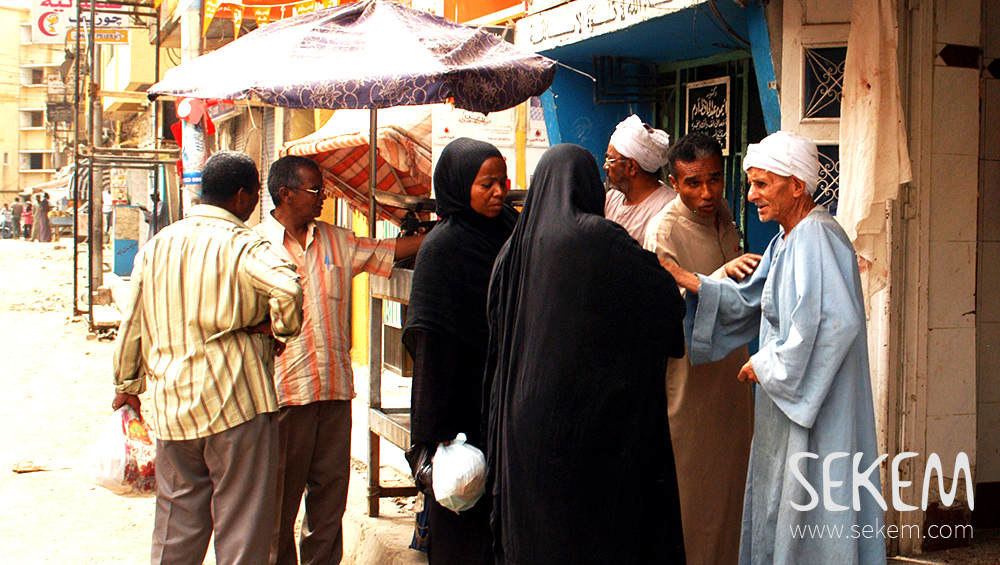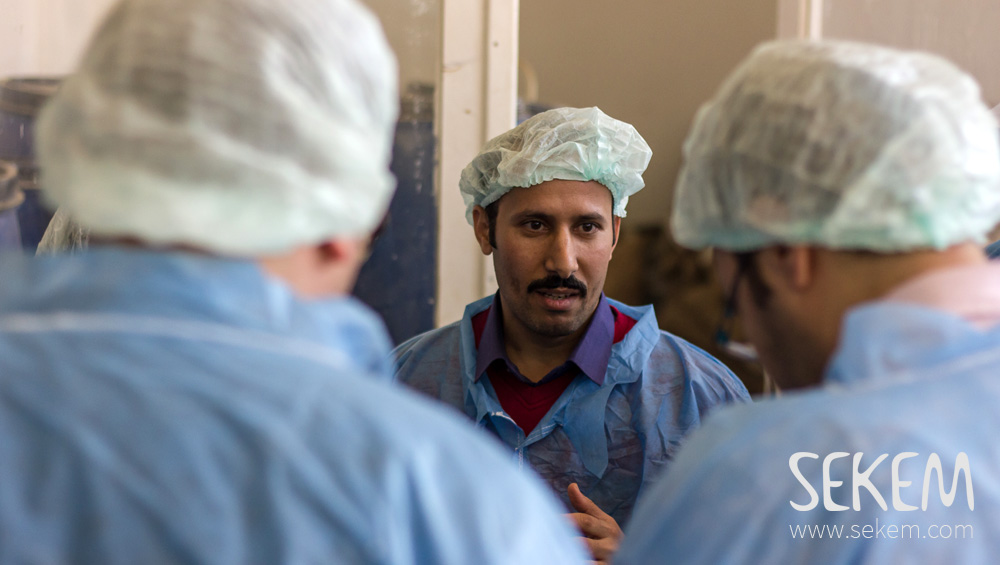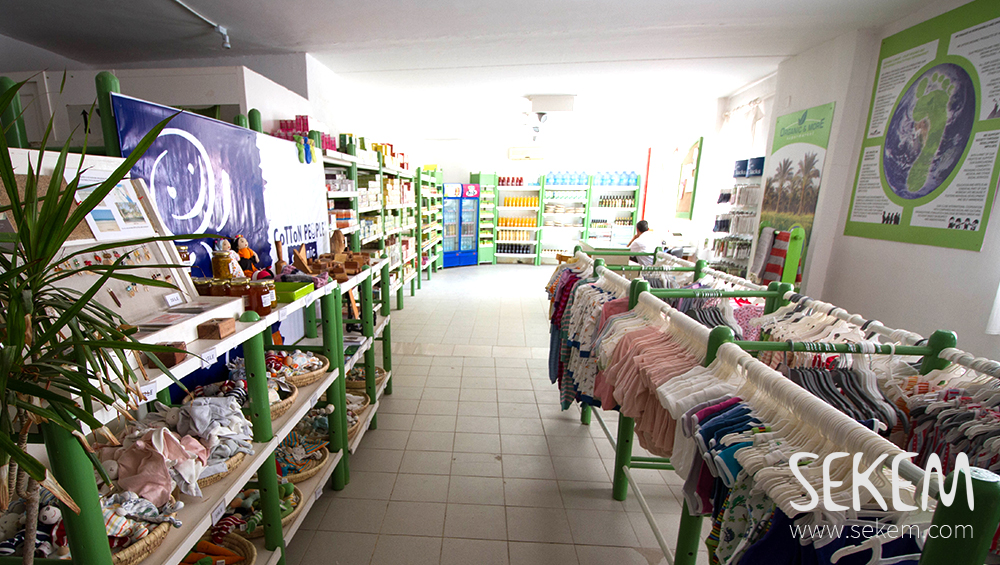Fertile land is the fundament of Egypt’s economy.
Fertile land is needed to live on and to feed the population, but also strongly affecting the economy of a country. Agriculture is the backbone of most of economic activities and used to be for decades the mainstay for the Egyptian economy. However, its share has been reduced to roughly 13% of the GDP. In the 1970s, agriculture used to employ more than 90% of the Egyptian working population but decreased to approximately 30% nowadays. This is one of the major economic problems that Egypt is facing and leads to further challenges.
The unemployment rate reached over 13%, which affects mainly women and the youth. The resulting poverty and income disparity is also putting a lot of pressure on the current economic and political situation. In 2011 the World Bank classified 25% of Egyptians as living below the national poverty line.

Land degradation increases economic challenges
The limited water and agricultural land and the growing desertification combined with the population growth are creating growing pressures on Egypt’s ability to provide food for its people in the future. The high rate of subsidies for basic commodities like wheat, cooking oil and sugar makes the Egyptian government especially vulnerable to external price shocks. Egypt is relying on food imports and is the world’s largest wheat importer.
The political changes in the past years challenged Egypt’s economic system even harder.
Economy is a huge part of the sustainable development of any country, but needs new approaches and values. When SEKEM was established, the founder Dr. Ibrahim Abouleish first bought desert land, reclaimed and cultivated it and then built up a company to process the agricultural products and distributing them on the market. Why was land reclamation and sustainable farming not enough for him? SEKEM should be a holistic initiative for sustainable development that “conducts all economic activities in accordance with ecological and ethical principles”, he answers.
Conduct all economic activities in accordance with ecological and ethical principles
Sustainable development and land reclamation cannot be real sustainable if its yields are processed and distributed on a market that does not care about those who created the values. A fair and conscious economy is crucial for the sustainable development of ecology, societal and cultural life. This is why SEKEM Initiative today includes different companies that employ more than 1200 people and are competitive on the market, although the economic profit is not in the focus.

First, the company Lotus was established to process the herbs, spices and seeds that SEKEM cultivates on its fields. The raw material goes than to the company ISIS Organic that produces tea out of it and became the pioneer and market leader for Organic products in Egypt. But as people do not only need healthy food but also good medical products that combat their diseases in a natural way sparing them from additional harms ATOS Pharma was founded that pioneered the Egyptian market with phytopharmaceuticals. And the famous Egyptian cotton, which was for a long time also a huge economic sector in the country, is processes to Organic certified textiles, garments and children’s wear by SEKEMs company NatureTex, mainly for the European market. However, SEKEM keeps its consolidated target of selling about 75% locally and exporting not more than 25% of its products.
A closed value chain
SEKEM promotes a closed value chain being able to determine the conditions from the field until the end consumer. Thereby, its economic activity ensures that the environment is not harmed, that people who create the value receive a fair income and work in a proper conditions and that those who consume the product benefit from a high and healthy quality.

Today, almost 40 years after SEKEMs establishment, its companies grew that big that the SEKEM Farm itself is not able anymore to produce all crops alone. Hence, SEKEM contracts roughly 800 farmers all over Egypt that cultivate land in a sustainable Biodynamic way and supply the different companies with raw materials. This generates not only more jobs but also supports combating of land degradation.
Farming for SEKEM means applying Organic methods and working under the so called “Economy of Love”-conditions, which SEKEM developed and can be compared to the international Fairtrade-values. Farmers receive stable contracts and prices for their products, which enables them to ensure their family’s livelihood and to plan and expand their business activities. Besides, SEKEM supports all its supplying farmers with regular training courses and cultural activities, such as illiteracy courses or workshops on new agricultural approaches. The farmers and SEKEM benefit from a Win-Win-situation, which is based on brotherliness instead of competition and egoism.
International Partnership
At all places of the value chain reliable partnerships are of immense meaning. Since its foundation, SEKEM benefits from supporters who have similar approaches. One network of partners was founded in SEKEM and builds one of the main pillars in SEKEMs economic life: the International Association for Partnership in Economy and Trade (IAP). The corporation was established by several long-term European business partners, in order to create a dynamic interaction between farmers, producers and traders, with the goal to provide consumers with high quality products. The partners have cooperated since 1984 to strengthen the basis for Biodynamic and Organic agriculture worldwide and build a community of interest that connects east and west.

Together, IAP members developed the Sustainability Flower, a management, assessment and communication tool symbolizing the concept of sustainable development in its four dimensions. Each dimension consists of several performance aspects, defined in detail through performance indicators, which are yearly summarized in SEKEMs Sustainability Report. The Sustainability Flower can be seen as a new and pioneering management tool and is implemented by many European business partners as well.
Considering the costs of environmental impacts
To foster sustainable economic activities that prevent land degradation, SEKEM is committed to reveal the true costs of farming and food production. In a study (under the name “The Future of Agriculture in Egypt”) the full costs of Organic and conventional production development of Egypt’s five main crops were compared by considering environmental impacts, such as the pollution of soil, air or water. The research concludes that, although Organic agriculture has a slightly higher direct input, it enables a reduction of the environmental and health damage costs, and therefore, results in better cost effectiveness and profitability in the long-term for society as a whole.
By supporting and inventing projects, studies and researches SEKEM is always trying to spread the positive outcomes of its daily business to prove that is possible to realize a successful, but in the same time sustainable and conscious business that does not harm people and nature.

When SEKEM founder Dr. Ibrahim Abouleish bought land in the middle of the desert to build up a sustainable initiative including a flourishing economy he was called to be crazy. Today, not only the arid land is blooming, but also companies perform competitive on national and international markets. SEKEM shows that an “Economy of Love”, which brings back fertile agricultural land and a healthy society to Egypt, is possible.
Christine Arlt
Read more about how SEKEM tries to combat Egypt’s desertification in:
Ecology
Cultural Life
Societal Life
Every Desert Hides a Well

